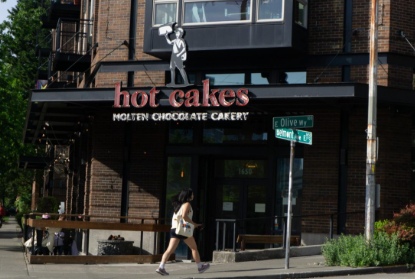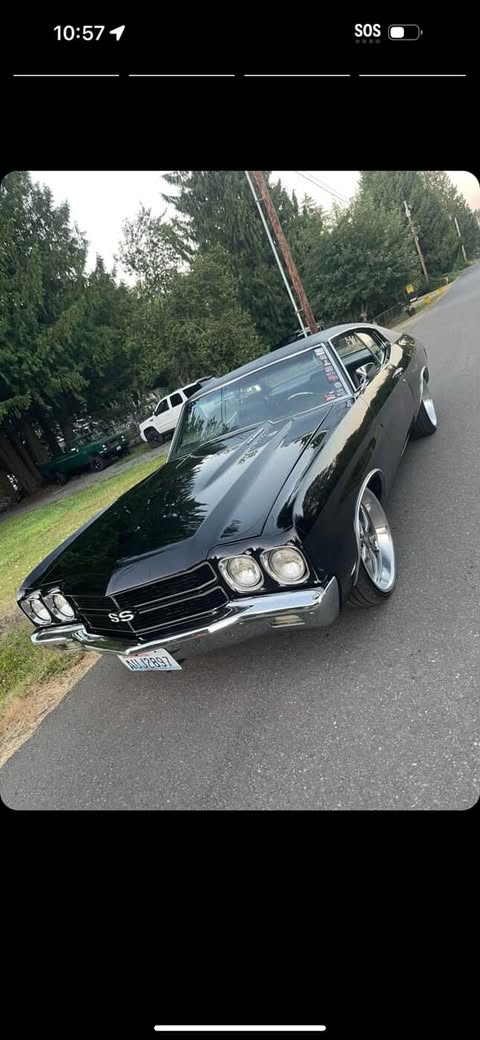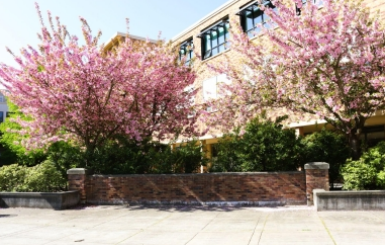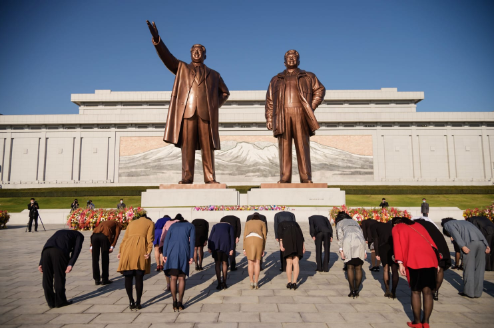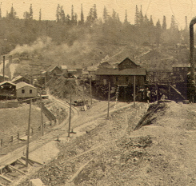
Renton’s history makes it a unique city for many reasons. Located at the juncture of the Black and Cedar rivers and Lake Washington, the land that had been Duwamish tribal homelands for centuries would become the City of Renton with the influx of coal miners, loggers, and other workers. By 1901 the area’s coal mining operations had brought enough people, problems, and progress here to allow the city to officially incorporate. Since then, waves of immigrants have made their homes here, first for coal mining, then for jobs at PACCAR and Boeing, and finally for today’s high tech and service occupations.
Whether new immigrants or longtime residents, these Rentonites have left their imprint on the town. Their aspirations and hard work are the basis for today’s laws, clubs, businesses, churches, families, schools, and architecture.
Seattle’s phenomenal growth (nourished by the Alaskan Gold Rushes) brought about the reopening of Renton’s coal mines and an influx of new cash. The Renton Clay Works opened on the banks of the Cedar River and began producing bricks, firmly establishing the town as the “Paving Brick Capital of the World.” In 1905 Pacific Car and Foundry (later PACCAR) relocated from Seattle to Renton. Industries such as these sustained the town. Unlike neighboring coal towns, Renton was actually using its coal for other manufacturing.
In response to a vigorous call for laborers abroad, newly arriving Italian immigrants built their homes in the Talbot Hill area. North Renton was also annexed into the city.
Miners laid the foundations for a thriving community, organizing churches, schools, and the first Renton Public Library. The city’s first high school students graduated from Central School in 1904. Renton also established a municipal water supply, a volunteer fire department, and a sewer system. By the end of this decade the Seattle/Tacoma Interurban Railroad and the Milwaukee Railroad crisscrossed the town. Although officially registered as a 3rd class town, Renton was on the map.
Population: 92,372 (2010) – 104,491 (2023)
Area: 25.27 square miles (2025)
Renton entered the 2010s still recovering from the national recession of 2008. As more and more people relocated to participate in the Pacific Northwest tech boom, the housing market tightened, resulting in median home prices increasing by 51% from 2010 to 2020. Homelessness was on the rise in most King County cities, as in most of the U.S., and Renton worked on offering humane solutions consistent with legal requirements and nearby cities’ strategies. The city invested in new subsidized and affordable housing options in the Renton Highlands and elsewhere, and nonprofits like Low Income Housing Institute (LIHI), the Renton Housing Authority, and REACH also worked on creative solutions.
New residents and workers continued to flow into Renton and the city embarked on several multi-year streets improvement projects, on Rainier Ave. S and many others, to accommodate travelers by car and bicycle. In 2020 the city began the process of reversing one-way streets that had been instituted in downtown Renton after WWII. These changes incorporated the Renton Trails and Bicycle Master Plan’s aim of creating an integrated approach to recreational and non-motorized transportation, offering travelers through Renton a more environmentally friendly system. Electric vehicle charging stations also began popping up at City Hall, the Landing, and other locations.
New residents joined the 56,000 Coast Salish people in the United States and Canada today. The petition for federal recognition of Renton’s First People, the Duwamish Tribe, was affirmed by the president in 2001, but immediately overturned by the incoming administration in 2002; as of 2025, their quest for tribal recognition continues. Coast Salish people are integral to Western Washington communities, attending schools and universities, and working as business-owners, educators, healthcare workers, and in many other professions. The Duwamish people encourage everyone to learn more about their culture by visiting with them at local events held at the Duwamish Longhouse.
Renton also accommodated the many new residents by building three new schools. In 2017 Risdon Middle School opened, named for veteran Renton educator Vera Risdon. In September 2018, Sartori Elementary School opened in North Renton as a brand-new STEM-focused school. And in August 2023 Hilltop Heritage Elementary School welcomed kids from the Highlands area. The Family First Community Center also opened adjacent to Cascade Elementary School, to bring healthcare, educational, and training services to the Cascade-Benson neighborhood.
Beginning in March 2020, Renton schools, businesses, and recreational facilities suffered through a yearlong global pandemic of Covid-19 that shuttered public gathering places for months. Like the 1918 – 1919 influenza, healthcare workers and officials struggled to cope with the numbers of sick and contagious people, but unlike 1918 – 1919 a speedy federal vaccine creation and immunization initiative saved lives and helped stores and schools reopen by early 2021. Online tools such as telework, streaming entertainment, online food delivery, and remote schooling helped mitigate the social isolation. Nevertheless, studies showed that kids lost educational ground, adults and teens suffered from social deprivation, and businesses—particularly restaurants and taverns—tried to recover.
The city’s largest employer, The Boeing Co., ran into difficulties during the 2010s. Two high-profile multiple fatality crashes grounded Boeing 737 MAX planes in 2018 and 2019, followed by a series of investigations into safety violations and consequent fines. Delivery of the 777X was delayed until 2025, and problems with door plugs in the 737 MAX 9 in 2024 resulted in renewed scrutiny of the company’s safety procedures. A two-month machinists’ strike in 2024 won them a 38% wage increase, bringing their pay more in-line with King County’s high cost of living. The Boeing Co. announced a planned 10% lay-off and refocus on its core mission.
Renton’s sports growth was a post-pandemic bright spot. The Seattle Sounders soccer franchise joined the Seahawks in selecting Renton as their home, opening a new training facility and soccer center on the grounds of the old Longacres Racetrack in February 2024. Longacres occupied the site from 1933 to 1992, so in their 50th anniversary year the Sounders pushed Renton’s tradition of sports excellence into the future. Topgolf Renton also opened in July 2022 on former Boeing land near The Landing. In 2025 the city planned a revitalization of the downtown Piazza and Pavilion in advance of the 2026 World Cup of soccer in the Seattle area, during which Renton will be an “experience city.”
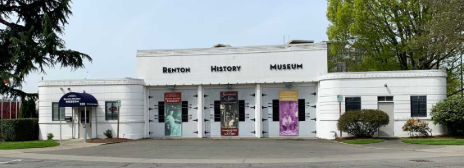
The Renton Museum’s home is the 1942 Renton Fire Station No. 1. Completed in 1942, the building was the city’s first dedicated fire station and was built under the federal Works Progress Administration (WPA). The museum is situated in historic downtown Renton, an easy walk to KCLS Renton Library, Liberty Park, the Cedar River, and shops and restaurants. Free parking is available in front of the building, and in the Main Ave. S. parking lot behind.
The museum’s permanent exhibits represent a small sampling of Renton’s rich heritage, and the temporary exhibits fill in the gaps. Visitors will learn more about Renton’s history and feel more closely connected to their community.
Renton History Museum – Temporary Hours
Sept 6, 2025 – Oct 24, 2025
Thursday-Saturday
10AM – 4PM
City of Renton
1055 S. Grady Way
Renton, WA 98057
Admission Cost:
Ages 18 & Up $5
Ages 8-17 $2
Children Under 8 FREE
Sources:

